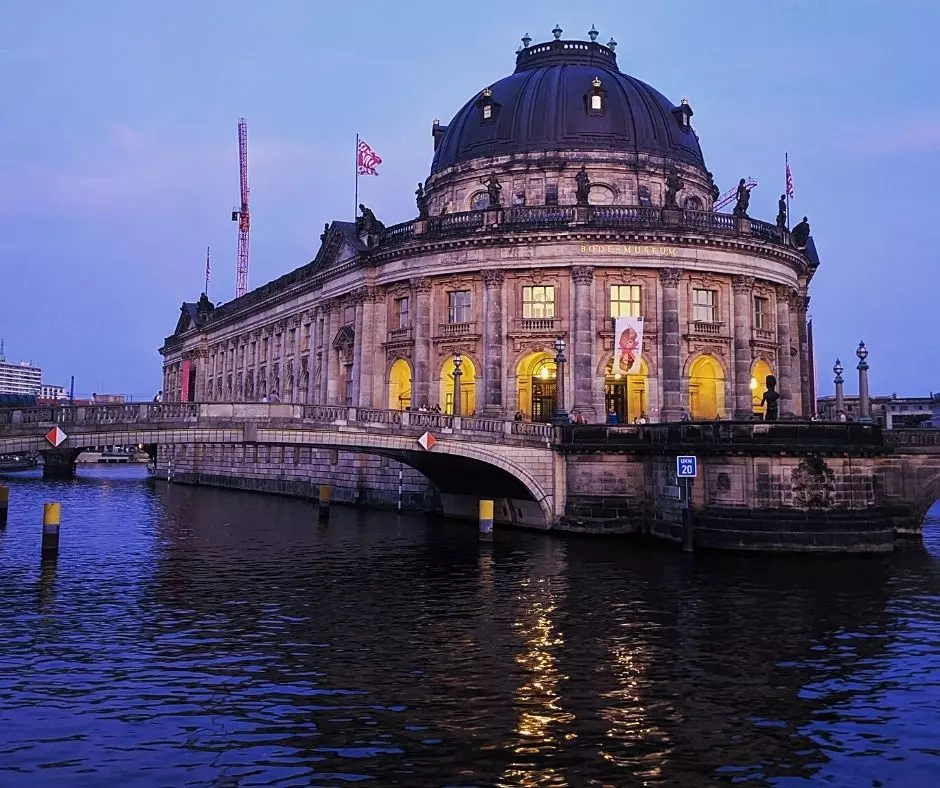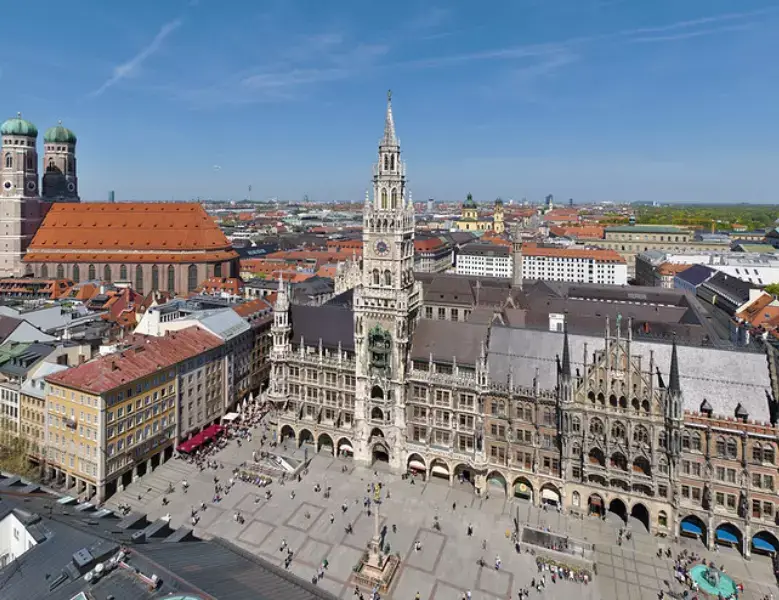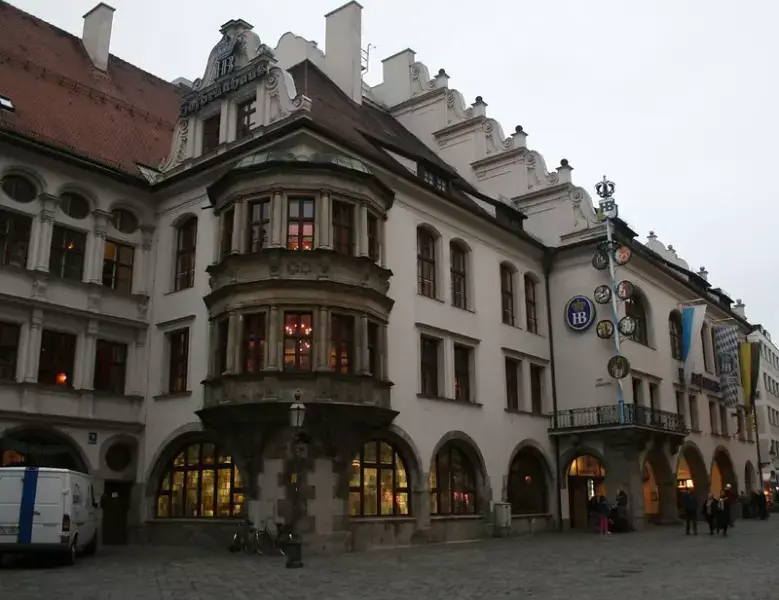22 Important Things to Know Before Visiting Germany
Germany, Europe / March 11, 2025 / 17 comments
Visiting Germany for the first time can be an exciting and overwhelming experience. With gorgeous landscapes, vibrant cities, delicious food, and rich culture, it’s no wonder why many travelers choose Germany as their first European destination. Here are my top things to know before visiting Germany so your trip can go as smoothly as possible.
With these tips in mind, your first time in Germany should be a memorable and enjoyable experience. Don’t forget to take plenty of photos and immerse yourself in the country’s rich history and culture.
Germany is a massive country, so these are general tips that will hopefully help your trip go smoothly.
This post contains affiliate links. This means if you purchase something from a link, I may make a small commission, at no cost to you. This helps me keep the site running and free.
If you like this post, be sure to sign up for my e-mail list for travel inspiration & tips, or connect with me on Facebook, Instagram, Twitter, BlueSky, Threads, or Pinterest. I also have a Facebook group where you can ask me anything travel related – and I share travel deals!

Top Tips for Visiting Germany for the First Time
1. Make sure you learn some basic phrases before arriving
One of the best ways to enhance your experience while traveling to a foreign country is to learn some of the local language. This is especially true when visiting Germany, as the country has a rich culture and history, and the locals take pride in their language. Before you arrive, take some time to learn some basic German phrases, and you will be able to communicate more effectively and make connections with the locals.
Start by learning some simple greetings like ‘Guten Tag’ (good day), ‘Auf Wiedersehen’ (goodbye), and ‘Danke schön’ (thank you very much). Other helpful phrases include ‘Wo ist die Toilette?’ (Where is the restroom?), ‘Sprechen Sie Englisch?’ (Do you speak English?), and ‘Ich spreche kein Deutsch’ (I do not speak German). Here are my top phrases for travel to learn before you go!
There are many resources available to learn German, including language apps, online courses, and even traditional language textbooks. Learning a few basic phrases can help make your German adventure more enjoyable and immersive. Plus, the locals will appreciate your effort to speak their language, and it can lead to memorable interactions and experiences during your trip.
2. Be aware of the cultural norms
When traveling to Germany, it’s important to be aware of the cultural norms in order to avoid any misunderstandings or unintentionally disrespectful behavior. German culture places a high value on punctuality, so it’s important to arrive on time for appointments and meetings. Additionally, it’s considered impolite to show up unannounced at someone’s home without prior invitation.
It’s also important to note that Germans are generally quite reserved and may seem unfriendly or distant to some visitors. Personal space is respected, and it’s not common to strike up conversations with strangers in public.
When dining out, it’s considered polite to wait for everyone to be served before starting to eat, and it’s customary to place a small monetary tip on top of the bill. When toasting with drinks, make sure to make eye contact with each person and say ‘Prost!’ or ‘Zum Wohl!’ before taking a sip.
As with any culture, it’s important to show respect and courtesy. By familiarizing yourself with the cultural norms, you can better navigate social situations and create a more pleasant experience for both yourself and the locals.

3. Try out the local food
Germany has a rich and diverse culinary scene that is heavily influenced by its regional cultures and traditions. When traveling to this vibrant country, trying local food should be at the top of your to-do list. German cuisine is famous for its hearty meats, fresh vegetables, and seasonal fruits. One must-try dish is the traditional Schnitzel, a breaded or battered cutlet of meat usually served with potatoes or salad. Sample some authentic Bavarian dishes like Weisswurst, a white sausage served with sweet mustard and a freshly baked pretzel. Adventurous foodies can taste some Spätzle, a soft egg noodle dish from Swabia, or the popular Rindfleisch, a type of beef stew. Pair these delectable dishes with a well-crafted beer from one of the country’s renowned breweries. Whatever your taste, Germany’s cuisine will surprise and delight your palate. By indulging in the local food, you’ll get a true flavor of the country’s culture and traditions.
If you’re not sure what foods to try, why not take a food tour? This secret food tour in Berlin or this evening of Bavarian food in Munich are great options!
4. Take time to explore the countryside
When visiting Germany, it’s easy to be swept up by the allure of its major cities and iconic landmarks. However, one thing that should not be missed is the country’s stunning countryside. Take time to venture beyond the city centers and into the lush forests, sprawling meadows, and rolling hills of Germany’s countryside.
For a truly enchanting experience, visit the Black Forest region, known for its picturesque scenery and quaint villages. The region boasts some of the most beautiful hiking trails in the country, offering panoramic views of the surrounding landscape. Another must-visit destination is the Bavarian region, famous for its fairytale castles and baroque palaces nestled among the Alpine scenery.
Embarking on a road trip is one of the best ways to explore Germany’s countryside at your own pace. You can rent a car and travel through winding roads surrounded by green spaces, stopping off at charming villages along the way. Alternatively, take the train and enjoy the scenic routes that offer glimpses of Germany’s unspoiled natural beauty.
While Germany’s cities are vibrant and exciting, immersing yourself in the countryside is an equally rewarding experience. You will discover a different side of the country, one that is serene, peaceful, and breathtakingly beautiful.

5. Peeing is not free
Okay, well the act of peeing is free, but not if you want to do it in a public bathroom. Germany is renowned for its welcoming culture, but public restrooms can cost between 50 cents to a full euro. Free public restrooms are quite rare!
This is true for bus stations, train stations, and even shopping malls and fast food joints. Sometimes the washroom gives you a coupon for a future purchase, so it might be a good idea to head to the bathroom before buying food.
Even restaurants and clubs can charge you – so be sure to always have some coins on hand (cash is king in Germany, but we’ll get to that in a few tips).
Note: Sometimes there is an attendant to help keep the bathroom clean & hand out towels to dry your hands. While a tip isn’t mandatory, it is heavily expected. Be prepared.
6. German punctuality is not a suggestion
One of the most notable things about Germany is their punctuality. It’s not just a stereotype or a joke, it’s a way of life for many Germans. Being on time is considered a sign of respect and professionalism, and being late without a good reason is often seen as rude or irresponsible.
This punctuality can be seen everywhere in German culture – from the promptness of public transportation schedules to the efficiency of government services. It’s also evident in the workplace, where meetings and appointments are expected to start on time, and showing up late can have consequences.
As a traveler, it’s important to keep this in mind and plan to be on time for any appointments or reservations. Whether it’s catching a train or meeting with a local guide, you can expect Germans to take punctuality seriously, and it’s best to respect their culture.
Overall, German punctuality may take some getting used to, but it’s an important part of their culture and something that sets them apart from other countries.

7. Ride the train
Riding the train is one of the best ways to explore Germany’s major cities and scenic countryside. The country’s rail network is extensive, reliable, and affordable, making it an ideal mode of transportation for travelers. Train stations are located in almost every major city, and many smaller towns, making it easy to get around on a budget.
Traveling by train also offers a chance to see some of the country’s most beautiful landscapes, from rolling hills to lush forests and dramatic alpine scenery. Along the way, you can spot fairytale castles and baroque palaces, all while enjoying the comfort and convenience of modern trains.
For those who enjoy road trips, Germany also has several scenic routes that can be traveled by car or train. One of the most famous is the Romantic Road, which takes you through historic cities and picture-perfect towns in the Bavarian region.
Before booking your train ticket, consider purchasing a travel pass, which allows for unlimited travel on trains and buses within a certain area and timeframe. This can save you money if you plan to take multiple trips during your stay.
Overall, riding the train in Germany is a great way to explore the country’s vibrant cities and varied landscapes while experiencing its excellent transportation system.
8. Visit a beer garden
A trip to Germany isn’t complete without a visit to a beer garden. These outdoor establishments are an essential part of German culture and a great place to enjoy delicious food, beer, and good company.
Beer gardens are typically found in green spaces, parks, or city centers. They offer a relaxed atmosphere where locals and tourists alike gather to socialize, eat, and drink. In the summertime, visitors can enjoy the mild weather while sitting under the shade of trees and sipping on fresh beer or fizzy water, commonly referred to as “Schorle.”
Most beer gardens serve rustic German foods like pretzels, sausages, and potato salad alongside their refreshing brews. It’s a great opportunity to try traditional German cuisine.
It’s important to note that it’s generally acceptable to bring your own food to beer gardens in Germany. That said, it’s best to confirm with the establishment beforehand. It’s also customary to buy beer by the liter or half-liter, and don’t forget to bring cash since many beer gardens do not accept credit cards. If you’re unsure where to go, try this beer garden tour in Munich. It’s a great way to explore in comfort.

9. Water is fizzy and will cost you
The first time I traveled to Germany I was very surprised to learn that carbonated water is usually the default when eating in a restaurant. It was later that I was surprised it wasn’t included in the meal. As a 20-something with a tight budget, this was not fun to discover.
Unlike some other countries where tap water is the norm, Germans typically drink bottled water. This means that you can expect to pay for water when dining out or grabbing a drink on the go.
Another thing to note is that many Germans prefer their water fizzy instead of still. You may notice that “Wasser” on a menu or in a shop is labeled as “mit Kohlensäure,” which means carbonated. If you’re not a fan of fizzy water, be sure to specify that you want “stilles Wasser” or still water when ordering. (You’ll still have to pay for it though!)
While it’s important to stay hydrated, keep in mind that constantly buying bottled water can add up quickly. Consider bringing a refillable water bottle with you to save money and reduce waste. Some restaurants and cafes may even have a water dispenser for you to refill your bottle. Ultimately, staying hydrated in Germany may require a bit of extra cash, but with some planning, you can still enjoy the country’s delicious food and drink offerings without breaking the bank.
10. Never ask for tap water in a restaurant
Related to the tip above, don’t ask for tap water in a restaurant. Asking for tap water in a restaurant is generally seen as impolite or even rude. Unlike in some other countries, where tap water is automatically provided on request as a free option, German restaurants usually only serve bottled mineral water for a fee. This is because tap water in Germany is regulated by strict health and safety standards, and restaurants are not allowed to simply serve it without proper filtration and testing.
Asking for tap water can be perceived as a sign of being cheap or stingy, and may even lead to discomfort or embarrassment. Instead, it’s recommended to simply order a bottle of water, either sparkling or still, and enjoy it alongside your meal. In most cases, the price for a bottle of water is not excessively high and can be shared among the table. Plus, it’s important to stay hydrated while enjoying the delicious German cuisine and cultural experiences. So, when dining out in Germany, skip the tap water and opt for a refreshing bottle of mineral water instead.
11. Always look for group discounts on travel/train tickets
When traveling in Germany, purchasing group tickets for public transportation can be a cost-effective way to get around. The Deutsche Bahn offers group tickets for up to five people traveling together, with discounts of up to 70% off regular ticket prices. These tickets, known as “Ländertickets,” are valid for one day and can be used on regional trains and public transportation within certain states in Germany.
Additionally, some cities like Berlin and Munich offer their own group ticket options that can be used on all modes of public transportation within the city limits. These tickets are typically cheaper than individual tickets and can be used for up to five people traveling together.
If you plan on taking day trips from one city to another, purchasing a day ticket for regional trains can also be a good option. These tickets allow for unlimited travel within a particular region and can be purchased individually or as a group.
When in doubt, check with the local transportation authority or Deutsche Bahn to see what group ticket options are available. With a bit of planning, you can save money on transportation and have more to spend on other aspects of your German adventure.You can also get a Welcome Card for Berlin at a discounted rate for some of the zones.

12. Biking culture is huge
I didn’t expect this when visiting Germany. I knew about it in Amsterdam and even in Beijing, but not Germany. It’s imperative, especially if you’re driving, to be aware of bike lanes and their purpose.
Even as a pedestrian, you have to keep your eye out. The bike lane is often next to the pedestrian area, so remain vigilant so you don’t wander into the bike lane. You risk injury to both yourself and the biker.
German cities have well-established bike lanes that are usually marked and separated from pedestrian walkways. Bikers have the right of way in these lanes, so it’s important for pedestrians to keep a watchful eye for incoming cyclists.
It’s important to note that in some cities, like Berlin, the bike lane is actually a two-way street with cyclists moving in both directions. It may be tempting to walk in the bike lane in order to avoid congestion in pedestrian areas, but it’s better to stick to designated walkways or even cross the street if necessary.
You can embrace the local culture and go on a bike tour of Berlin, Munich, Hamburg, Cologne, or Dresden.
13. Jaywalking is a huge NO.
Growing up right outside New York City, jaywalking is common and almost required to get places. However, if you do that in Germany (even without a car in sight) people will express their dislike. If you think German sounds angry, just wait til they actually are.

14. Small talk is not appreciated
As an extrovert, I love making small talk. In Germany, small talk and pleasantries are not as common in day-to-day interactions compared to other cultures. When meeting new people, Germans tend to get straight to the point and focus on the task at hand. While this may initially come across as cold or distant, it is simply a cultural difference. Germans value directness and efficiency in their conversations and interactions. This can be a little off-putting for people like me, so just be prepared.
However, this doesn’t mean that Germans are unfriendly. Once a relationship has been established, Germans can be warm and welcoming. It’s just that they prefer to skip the small talk and get to know someone on a deeper level.
15. Always recycle (plus you can save money!)
Recycling is an essential part of living sustainably, and in Germany, it is taken very seriously. As a visitor to the country, you too can do your part by following the recycling instructions carefully. Recycling bins are widely available in public spaces, and they are usually divided into categories like paper, plastic, and glass. In some areas, there may be additional categories, so it’s important to pay close attention to the instructions on the bins.
One thing to note is that Germans are very particular about what can be recycled. It’s essential to clean and sort your waste properly to avoid contaminating the recycling stream. For example, plastic bottles should be emptied and rinsed before being put into the recycling bin. If you’re not sure what can be recycled, ask a local or do some research beforehand.
Recycling is not only good for the environment, but it also helps to keep streets and public spaces clean. By making an effort to recycle properly, you’ll be contributing to a cleaner, more sustainable future for everyone.
There are often refundable deposits on cans, bottles, and mugs. It’s an incentive for you to return the item to get your money back. Sometimes this comes in the form of a plastic token to bring back, other times it does not. Sometimes that 1 euro bottle might cost 1.50 instead. That’s the incentive! Be sure to always recycle.
16. Prepare your cash
When traveling to Germany, it’s essential to make sure you have cash on hand, especially if you plan on visiting small towns or local markets where cash is often the preferred method of payment. While credit cards are widely accepted in urban areas, it’s always a good idea to have some euros on you just in case.
Before you arrive in Germany, it’s a good idea to exchange some of your home currency for euros at your bank or currency exchange. You can also withdraw euros from ATMs once you arrive, but make sure to check with your bank beforehand to avoid fees or other transaction charges. Check out my guide to figure out how much money YOU should take.
When carrying cash, it’s essential to keep it safe and secure. Avoid carrying large sums of cash with you and consider using a money belt or other secure method of storage. Be sure to keep your cash and other valuables out of sight and be cautious in crowded areas like train stations or markets.
Remember to keep a few coins on you for the bathroom!

17. Know the transport zone
When traveling through Germany, it’s essential to familiarize yourself with the transportation system. One key aspect of this is understanding the transport zones. Many cities and regions have their own transportation networks with different zones, and it’s crucial to know which zone you’re traveling through to avoid any unexpected charges or fines. This is one of my most important tips for visiting Germany.
Most cities in Germany have public transit systems that include buses, trains, and trams. Each of these modes of transport has a different zone system, which is designed to charge riders based on the distance they travel. It’s important to note that some zones may overlap or have different boundaries, depending on the region or city.
To make things easier for travelers, many cities offer transport passes, such as the Deutsche Bahn travel pass or city-specific passes that provide unlimited travel within designated zones. These passes can save you money and eliminate the need to constantly purchase individual tickets.
18. Inside voice, even outside.
When visiting Germany, it’s important to keep in mind that Germans value their privacy and personal space. As such, it’s common courtesy to keep your voice down in public places, such as cafés, restaurants, and shops. Speaking loudly or causing a disturbance may lead to negative attention and even disapproval from locals. Germans are generally reserved and tend to keep to themselves in public, so shouting or creating noise can be seen as disruptive.
This cultural norm particularly extends to public transportation, especially during rush hour, where passengers prefer a quiet and peaceful commute. It’s a good idea to keep conversations to a minimum and avoid loud music or phone calls while on buses, trains, and trams. I definitely did not miss the Bluetooth speakers of the NYC subway.
Keeping your voice down also shows respect for the people around you, allowing for a more harmonious and pleasant environment. By following this simple rule, tourists won’t only avoid a cultural mishap, but also gain a deeper appreciation for German culture.

19. Nudity is not a problem (in some places).
One thing that may come as a surprise to some visitors in Germany is the country’s relaxed attitude towards nudity. In fact, public nudity is accepted in many places, particularly in designated areas such as nude beaches or saunas.
It’s not unusual to see people sunbathing topless in public parks or changing openly in locker rooms. While this may seem strange to some, it’s important to understand that nudity is not seen as sexual in Germany, but rather a natural state of being. This cultural norm reflects the country’s progressive and liberal attitudes toward the body and sex. It’s important for tourists not to stare or make inappropriate comments, as this could be seen as disrespectful. If visiting a nude beach or sauna, be sure to follow the local rules and customs, such as always carrying a towel to sit on. Embracing this aspect of German culture can lead to a deeper and more meaningful travel experience.

20. They will scold your kids for you
In Germany, there is a common cultural belief that everyone has a responsibility to maintain order and respect. This extends to the behavior of children in public places, such as restaurants, parks, and museums. If a child is misbehaving or causing a disturbance, it is not uncommon for other adults, even strangers, to intervene and discipline the child.
This may come as a surprise to visitors from other countries, where the responsibility for a child’s behavior falls solely on the parents or guardians. However, in Germany, it is seen as a collective responsibility to ensure that children are raised to be well-behaved and respectful members of society.
If you are dining out in Germany with your children and they are misbehaving, don’t be surprised if another diner or even the waiter speaks up and scolds them for you. While this may be uncomfortable for some, it is important to understand that it is not meant as an insult or attack on your parenting skills, but rather a reflection of the cultural values of the country. So, when visiting Germany with children, be prepared for this possibility and understand that it is all part of the experience of experiencing a new culture.
21. Tax is included in the price
In Germany, taxes are included in the price of goods and services, which means that the displayed price is the final price that you will pay. (I really wish America had this!) This includes value-added tax (VAT), which is a tax on the value added to a product or service at each stage of production or distribution. The current VAT rate in Germany is 19%, although certain goods and services are subject to reduced rates of 7% or even 0%.
One advantage of this system is that it makes shopping and dining out in Germany more straightforward and transparent, as there is no need to factor in additional taxes when calculating the final cost. This is also helpful for travelers who may not be familiar with the local tax system. It also ensures that businesses are not able to deceive customers by displaying a lower price and then adding taxes at the point of sale.
So when shopping or dining out in Germany, remember that the price you see is the final price you will pay, with taxes already included. This makes budgeting and financial planning easier and allows you to fully enjoy the products and services without worrying about hidden fees or costs.
If you’re bringing any souvenirs home, be sure to research the German VAT refund. You’ll need the receipts, the unused purchased good and your passport showing residency outside the EU.
22. Autobahn is German for Highway
The Autobahn, which means “highway” in German, is known around the world for its unique driving experience. Germany’s highways are famous for having sections without any speed limit, allowing drivers to reach incredibly high speeds. However, it’s important to note that not all sections of the Autobahn have no speed limit, and it’s crucial to follow all posted speed limits and regulations.
Driving on the Autobahn can be a thrilling experience for travelers, offering an opportunity to see the beautiful scenery of Germany at high speeds. However, it’s essential to exercise caution and always prioritize safety when driving on the Autobahn. The highway is often congested during peak travel times, and sudden weather changes can create hazardous driving conditions.
As a visitor to Germany, it’s essential to understand the rules of the road and adapt to the local driving culture. This includes driving in the right lane unless passing, signaling when changing lanes, and respecting other drivers’ space.
Final Thoughts
I hope you’ve learned something new through my things to know before visiting Germany. If you have any more Germany travel tips, let me know in the comments!
Save “Things to Know for Visiting Germany” for later
About the Author


17 responses to “22 Important Things to Know Before Visiting Germany”

Lots of helpful tips and advice here for the traveller. I understand how taxes being included in prices in Germany (as they are in the UK) , seems unusual. The price you see is the price you pay. That difference often threw me in the US and having to do mental arithmetic to work out what you would pay at the check-out in the US was annoying.

I’ve lived in the US my whole life and the fact that each state is different too is a bit mind boggling. So it’s nice when traveling outside the states to not have to do the mathematical gymnastics to figure out if I have enough money haha

These are all such great tips, especially the one about learning a few key phrases. I have found that even just casual greeting go a long way to show you respect the culture even if you can’t fully speak the language.

Absolutely! Couldn’t agree more.

Paying to pee in public bathrooms is what I kinda did not like in Europe. I mean 1 euro is quite a lot. But, many times, I found some kind locals in Zurich who used to give me their bill with the code to use the restroom in joints like Mcdonald’s.

Haha another reason why making friends with local is great! I don’t like it because when I gotta go, I gotta go and I’m terrible at carrying cash. I did, however, love the cleanliness haha.

This is incredibly useful information. I’m a bit of a stickler for wanting to be respectful in another country so I research things like manners and dress. It’s really good to know about ordering tap water! Thank you so much. Definitely saving this to refer back to before I visit!

Absolutely. I hate making faux pas even with great intentions so I like to know those little things that can help make the transition to a new culture easier for visitors.

I’m here in Germany right now so experiencing a lot of this at the moment. The fizzy water has been a surprise more than once, and it hasn’t always been easy to find still water. I did take some German lessons before my trip and it’s really helped me although so far most everyone has spoken at least some English (though I don’t expect it). Great first timer guide to Germany

Germany is on my list of places to visit and this post is very informative. who would have known you would have to pay to use the washroom or that water served in restaurants is fizzy water? being an extroverted solo traveller I might have a problem with excessive talking lol. but now I know.

One thing I admire about Germany is the punctuality mindset. It very much is respectful and professional. I wish it was more prevalent in my country. I wasn’t aware the biking culture is as big as it is. It seems Germany is a nice place to live. I really hope to visit one day soon. As a beer-drinking country are there generally good options for people who have Celiac disease?

I like these kinds of posts and I’m intrigued by how foreigners view German culture from an outsider’s perspective and share the points that are most obvious to them. Some of yours are specific to Bavarian/South German culture and not necessarily a thing in Middle and North Germany. The payment for public bathrooms outrages many Germans (me included) and there is a very slow change noticeable in restaurants offering filtered tap water. Some cafes do it but others still charge 30p.
Carolin | Solo Travel Story

Lots of great points! I’m glad recycling is the norm but I’m not sure I understand the issues with tap water. I feel like I’ve probably ordered it (since I usually do) but I don’t remember feeling any awkwardness about it. In any case, thanks for the advice 🙂

It’s not an issue per se, more of a social faux pas. Many restaurants are used to it, but if you ask for still, they’ll typically serve bottled water, not tap.

I love this post full of tips on how to act in Germany. I really wish I knew how to say more things in German, but I can only say the basics, which allows me to interact and show respect for the culture when I visit the country.
I would VERY much like us Portuguese to internalize the punctuality issue, like the Germans ahahahah I think a part of me is Nordic when it comes to keeping schedules!
Great post with loads of really helpful tips. We have not yet visited Germany but would very much like to. Your foodie suggestions – Schnitzel, Weisswurst, Spätzle and Rindfleisch all appeal – as do the beer gardens! Interesting that shouldn’t ask for tap water and should just get the mineral water. Totally agree with your point about learning basic phrases and understanding cultural norms.

This was very informative and fun to read! I am familiar with the German’s punctuality from working with them in the past, they were always ahead of everyone else to meetings and would also always deliver on time! they are very polite but generally quite reserved from my experience and would only loosen when drunk! the paying to use toilets is pretty much like Britain although it’s slowly changing but I personally find that outrageous because peeing is a human right lol. The group discounts on tickets is a great tip! Thanks for such a great article.












Leave a Reply